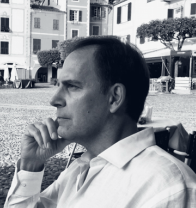|
“Everybody in this room needs to pull their head out of their a**es. We really live in a world where everybody thinks that ideology is linear, and that, ‘if you answer these 10 questions correctly, that makes you a conservative.’ But not every conservative is pro-life. Not every conservative is anti-gay marriage. Not every conservative puts 100 percent emphasis on this or that . . . Donald Trump is post-ideological. His movement transcends ideology . . . It’s the reason so many Trump supporters and so many [Bernie] Sanders supporters agreed on so many things.” These observations were made by Tony Fabrizio, political pollster for the Trump Campaign, at an election forum at Harvard’s Kennedy School. So, is Fabrizio right? Are we living in a post-ideological world? I certainly hope so.
Let’s be clear, my interest in a post-ideological political world has nothing to do with Trump, Sanders, Clinton, or any other candidate for political office. My interest is much more pragmatic. I want government to work. I want it to address the large backlog of essential issues waiting for solutions. Ideology is a poor problem solver. Ideology works well to inform choices on monumental issues that mobilize a people and require them to decide – at their core -- who they are going to be: anti-slavery, fighting fascism in WWII, battling communism in the Cold War, civil rights, or stopping terrorism are the kind of issues that have ideological power. Ideology starts to unwind as a useful touchstone when you try to apply it to granular decisions. Ideology is not very useful when you try to determine whether your foreign policy should back an oppressive dictator in power or support the oppressive revolutionary coup trying to seize power from the dictator. Ideology is also a poor guide when trying to decide whether to provide more services for children or more services for seniors when deficits and debt levels are growing and there are inadequate resources for both. The essential point Fabrizio’s makes is that “we live in a world where everybody thinks ideology is linear”. Political strategists, campaigns, and lobbyist have counted on our linear thinking because it effectively disenfranchises the vast majority of us. In a system that emphasizes a linear ideological paradigm, two opposing ideologies always concede the power to make decisions to a small group who will pick and choose between which party to support. It is much easier to manipulate this system because you only need to mobilize a small group of voters to gain office. In a stalemated tug-of-war, it only takes one more person to break the stalemate and win the contest. That is why so much effort goes into trying persuade a swing voter to join a particular side of the political tug-of-war. That needs to change if we are to restore trust in government and effectively govern ourselves. There is reason for optimism. What looks to be a difficult problem really has a remarkably simple solution. The answer to gridlock and ineffective government caused by special interests manipulating the pervasive linear political paradigm is to create a new, non-linear paradigm. Replace the line with a sphere. Politics may be a tug-of-war, but good government is 3d chess. The bigger challenge is implementing the solution. At a time when only one-in-three people vote in midterm elections and only one-in-five vote in local elections, most of us have already abdicated one of our most essential rights as citizens. Another essential right we are abdicating in ever greater numbers, is our right to express our priorities and preferences to our political representatives. To install and popularize a non-linear solution will take time. It will require some effort from all of us. That is the price of freedom and effective government. After all, democracy is not a spectator sport. Copyright (c) 2016 by Jeffrey Scott Szorik
0 Comments
Your comment will be posted after it is approved.
Leave a Reply. |
AuthorMy name is Jeffrey Szorik. I am an average citizen with a lifelong interest in legislative politics. Like you, I would prefer our political representatives focus on the priorities & preferences of the majority of the electorate they are entrusted to represent. Restoring confidence in our political system depends on it. Join me, as together we explore how to restore 'government by the people and for the people.' Archives
August 2020
Categories |


 RSS Feed
RSS Feed